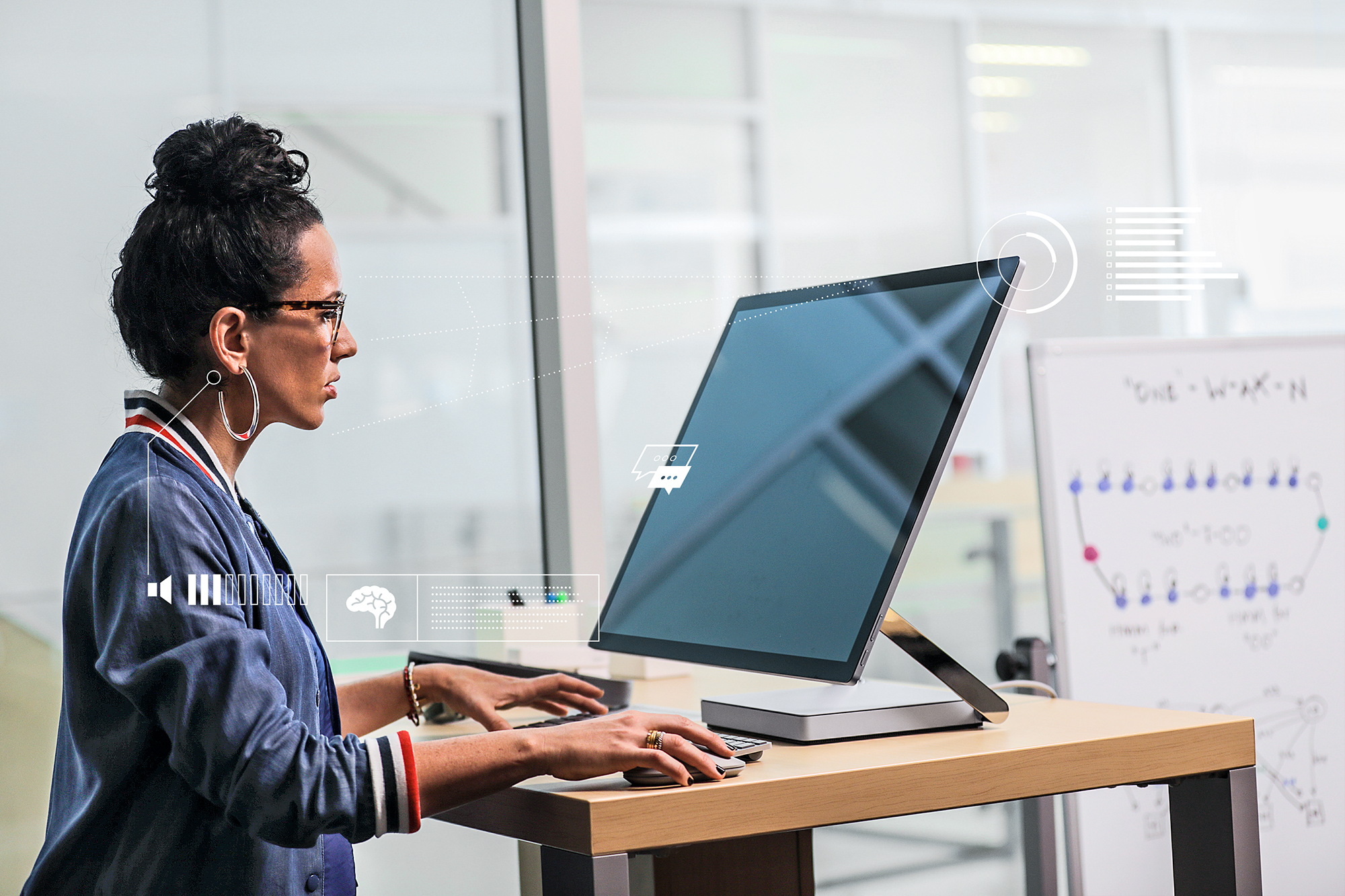Rather than being a disruptor, artificial intelligence will amplify the human ingenuity of Singapore’s greatest asset – her people.
 By Richard Koh, Chief Technology Officer, Microsoft Singapore
By Richard Koh, Chief Technology Officer, Microsoft Singapore
This article was first published in The Business Times on 26 March 2018.
Today, our morning routines will probably see us checking our smartphones for updates on the latest news headlines and updates of our friends’ social lives. You read the work emails arrived overnight, text your sister to confirm dinner plans, and perhaps check traffic conditions as you head to work.
In 2038, or probably earlier, digital devices will help us do more with one of our most precious commodities: time. At Microsoft, we imagine a world where your personal digital assistants such as Microsoft’s Cortana will be trained to anticipate our needs, help manage our schedule, prepare us for meetings, assist as we plan our social lives, reply to and route communications, and drive cars.
Artificial intelligence will enable breakthrough advances in areas like healthcare, agriculture, education and transportation. It is already happening in impressive ways.
In the office, AI is already helping companies understand customers better by analysing their preference and consumption patterns. In the fields, AI is helping farmers analyse weather patterns and soil conditions to help optimise their harvest. At home, smart devices such as lighting control and music players work together to provide the perfect ambience to unwind after a long day.
Beyond becoming the catalyst for some of the most dramatic changes in the way we live, work and play today, embracing AI will yield both economic and societal benefits.
By 2021, digital transformation will add an estimated US$10 billion to Singapore’s gross domestic product (GDP), according to a study released last month by research firm IDC, in partnership with Microsoft. The study also found that digital transformation will boost growth by an additional 0.6 per cent annually; and this will accelerate as digital technologies and services are enabled by AI, along with the Internet of Things (IoT) and data analytics.
The projected economic growth is possible with businesses adopting transformative technologies, of which AI is a central piece. In this future economy, new startups will sprout even as traditional businesses find new niches to grow into.
But as we have witnessed over the past 20 years, new technology also inevitably raises complex questions and broad societal concerns.
How do we ensure that AI is designed and used responsibly? How do we establish ethical principles to protect people? How should we govern its use? And how will AI impact employment and jobs?
To answer these tough questions, technologists will need to work closely with government, academia, business, civil society and other stakeholders. At Microsoft, we identified six ethical principles – fairness, reliability and safety, privacy and security, inclusivity, transparency, and accountability – to guide the cross-disciplinary development and use of artificial intelligence. The better we understand these or similar issues — and the more technology developers and users can share best practices to address them — the better served the world will be as we contemplate societal rules to govern AI.
We must also pay attention to AI’s impact on workers. One constant over 250 years of technological change has been the ongoing impact of technology on jobs — the creation of new jobs, the elimination of existing jobs and the evolution of job tasks and content.
Some key conclusions are emerging.
First, the companies and countries that will fare best in the AI era will be those that embrace these changes rapidly and effectively. This is because new jobs and economic growth will come to those that embrace the technology, not those that resist or delay adopting it.
Second, while we believe that AI will help solve big societal problems, we must look to this future with a critical eye. There will be challenges as well as opportunities. We must address the need for strong ethical principles, the evolution of laws, training for new skills and even labour market reforms. This must all come together if we are going to make the most of AI.
Third, we need to act with a sense of shared responsibility because AI will not be created by the tech sector alone. At Microsoft, we are working to democratise AI in a manner that is similar to how we made the PC available to everyone. This means we are creating tools to make it easy for every developer, business and government to build AI-based solutions and accelerate the benefit to society.
All of this leads us to what may be one of the most important conclusions of all. Skilling-up for an AI-powered world involves more than science, technology, engineering and math. As computers behave more like humans, the social sciences and humanities will become even more important. Languages, art, history, economics, ethics, philosophy, psychology and human development courses can teach critical, philosophical and ethics-based skills that will be instrumental in the development and management of AI solutions. If AI is to reach its potential in serving humans, then every engineer will need to learn more about the liberal arts and every liberal arts major will need to learn more about engineering.
Singapore’s ability to nurture a future-ready workforce will be key to thriving in the digital economy, one where digital products and services will make up 60 per cent of our economy. We need to constantly reassess and prepare ourselves for a future that appears to be shaping up differently each time you take another look at the crystal ball.
Yet, that concept is not new to Singapore, a young country that has both experienced and embraced change over the years. Singapore’s success has always depended on the skill, intelligence and determination of its people. Aided by AI, this human ingenuity will be even more important in the years ahead.
With AI, we have more power at our fingertips than entire generations that came before us. The questions will be what we will do with it.

